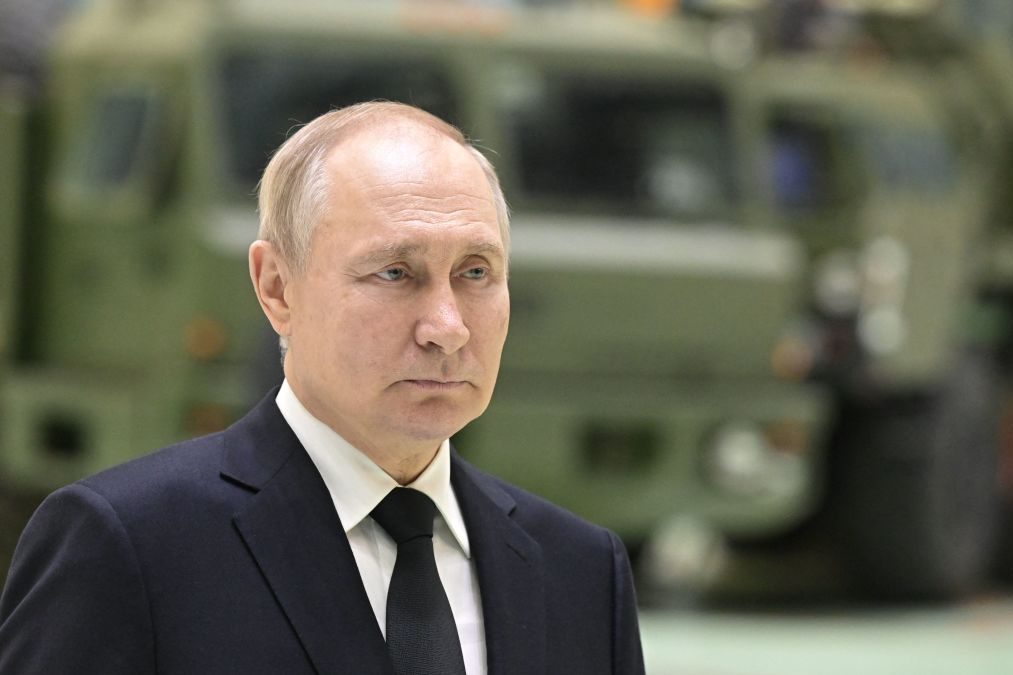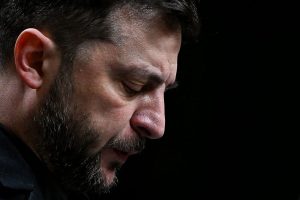On August 29, 1942, as German tanks reached the Volga river near Stalingrad, Josef Stalin consulted his most senior general, Georgy Zhukov about his strategy. Despite his impoverished background, Zhukov was intelligent, demanding and strong-willed. The general persuaded Stalin to delay counter-attacking the Nazis for a week to allow time for supplies and artillery to reach the Red Army. Five days later Stalin discovered the Nazis had almost reached the Stalingrad suburbs. Incensed, the Soviet dictator ordered General Zhukov to attack immediately. The Soviets did counter-attack but Zhukov later objected and argued this tactic was not feasible.
Despite his despotic instincts, Stalin accepted the general’s advice and ordered him to produce a new plan. On September 12, Zhukov presented Operation Uranus — which in effect tied down the Germans with minimal defense, causing attrition, while he assembled a new army for encirclement. At first Stalin was reluctant. He feared that Stalingrad would be lost. But his generals convinced him. Zhukov even persuaded the fearsome autocrat the operation should be delayed by ten days due to logistical problems, according to Stalingrad, the definitive account of the siege by Sir Antony Beevor.
Stalin did not always accept the advice of his generals. He regarded himself as supreme commander, chief strategist and involved himself in detail like military supplies. If his commanders delivered bad news from the front, he would accuse them of “panic mongering.” And so, some officers self-censored their reporting. The exception was the belligerent Zhukov. “Our duty is first of all to help the front commanders and only then to inform you,” he courageously told Stalin.
The general and the dictator had a tempestuous relationship. When Zhukov advised his boss to abandon Kiev to avoid encirclement, Stalin angrily demoted him from his role as chief of general staff. By the time Stalin realized his mistake and changed his mind, it was too late. But Zhukov was soon restored as commander of the Soviet forces which successfully defended Stalingrad based on the policy of “Not One Step Back.” Stalin grudgingly acknowledged that Zhukov was the architect of the Soviet victory over the Nazis in May 1945 when he was allowed to lead the victory parade in Moscow.
The legacy of Stalin’s victory over Hitler is crystal clear — ultimately, he accepted the advice of his generals. For Putin, a student of Russian history, it should have been a salutary lesson. But Russia’s failure in Ukraine reveals how he ignored Stalin’s legacy. Instead, he does not listen to his generals and only accepts advice from what Kremlinologists call “The Voices,” mainly his top national security official Nikolai Patrushev. Putin likes formal bureaucratic structures and meets his ministers and defense chiefs but ignores anyone who disagrees with him. Only a tiny coterie of officials is consulted, which explains why Sergei Lavrov, his foreign minister, was only told about the invasion of Ukraine at one in the morning, a mere three hours before it occurred.
Despite having no military experience, Putin has micromanaged Russia’s strategy and even made tactical decisions normally decided by an officer in charge of 700 troops. “Putin and Gerasimov (chief of the general staff) are involved in tactical decision-making we would normally expect to be taken by a colonel or a brigadier,” a western military source told the Times of London. A second source said a Russian brigadier would normally command a battalion tactical group of 900 soldiers. He added: “If Putin is doing the job of a brigade commander, he could be delving into a force as small as 700-1,000 soldiers.” He compared the situation to the owner of Amazon: “Jeff Bezos does not deliver your parcels, he makes strategy decisions.” A wealthy Russian businessman told me: “Putin is a terrible CEO.”
Unlike Stalin, Putin rarely accepts expert military advice and instead issues orders directly to generals in the field. The inevitable result has been strategic failure, especially early in the war. In response to setbacks, the Russian president has then blamed the messengers and fired at least six generals. Even Sergei Surovikin — known as “General Armageddon” for his murderous atrocities in Syria — was demoted and is now deputy chief of the general staff to Valery Gerasimov.
The military track record of Stalin appears to have left Putin unmoved. But inevitably he has addressed the legacy of the brutal Soviet tyrant. He opposes what he calls “the excessive demonization” of Stalin while not overlooking the horrors of his regime. Putin regarded the Soviet autocrat as “a product of his era… but this does not mean we forget all the horrors of Stalinism associated with concentration camps and the destruction of millions of our compatriots.” He has not refrained from addressing Stalin’s “mass crimes and evil acts of this totalitarian regime.”
But in recent years Putin has been more sympathetic. In 2017 he described Stalin as “an effective manager,” “a complex figure” and how criticism of his regime “is one means of attacking Russia.” And Putin has embraced elements of Stalinism, notably the cult of personality, state-sponsored assassination and criminalizing political dissent.
If Putin has ignored the lessons of Stalin’s military’s tactics, they do share one characteristic — the indifference to the scale of Russian casualties. “Sometimes I am shocked seeing how Russian commanders show no care about the lives of Russian troops,” said Janis Sarts, chief of NATO’s Strategic Communications Center. “I have not seen something like that from Ukrainian commanders.” The number of Russian fatalities — an estimated 171,000 — have not been made public by the Kremlin who appear unconcerned about the suffering of their own people. In that respect, Putin and Stalin are comrades in arms and will be inextricably linked in the annals of history. As Stalin used to say when asked about the show trials, torture and executions: “When you chop wood, the splinters fly.”
This article was originally published on The Spectator’s UK website.

























